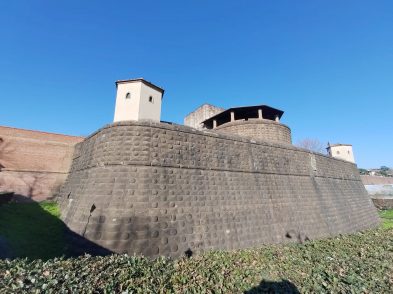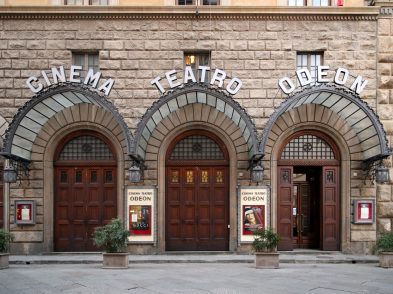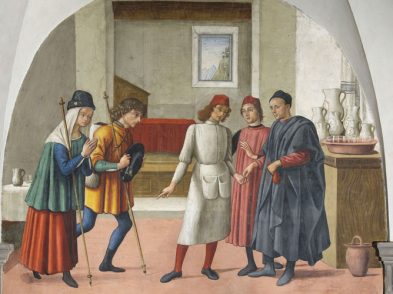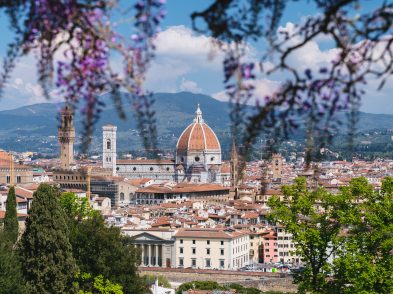If you have had the chance to pass through the Campo di Marte train station, you might have noticed an old factory nearby and wondered what’s made there and who’s behind it. The answer is Farmaceutica Menarini, the profits of which left Massimiliana Landini Aleotti and her three children fourth among Italy’s super rich when her husband, Alberto Aleotti, died at 91, in May 2014.
Over the course of four decades, Aleotti built Farmaceutica Menarini, transforming it from a 180-employee pharmaceutical company based in Florence into Gruppo Menarini, a global Goliath with more than 16,600 employees at 14 manufacturing sites around the world that, in 2013, produced 562 million packs of its products. Today, Gruppo Menarini is the leading Italian pharmaceutical company in the world: in 2014 it was ranked 16 among Europe’s 5,291 companies and 38 among the world’s 19,042, with in 2013 combined sales of 3.275 billion euro, 72 percent of which was generated abroad.
 IIllux by Leo Cardini
IIllux by Leo Cardini
The quintessential self-made man, Aleotti was born into a very poor family in Quattro Castella (Reggio Emilia) on March 4, 1923. His father died when he was eight years old, but because of the sacrifices his mother made and his own determined will, he graduated from school as a bookkeeper at 19. Employed by the struggling Farmacie Riunite of Reggio Emilia, a municipality-owned company, for the next four years he studied at night for a degree in economics from the University of Bologna. With characteristic drive, he soon turned the Farmacie Riunite into a profitable concern. On his suggestion, the municipality of Reggio used some of this revenue to provide free medicine to 20,000 of its most indigent citizens. This move, long before the creation of Italy’s national health system, led to the establishment of municipal pharmacies throughout the country.
In 1964, Aleotti joined Menarini as its general manager. Originally called the Farmacia Internazionale Menarini, the company had been founded in 1886 in Naples by pharmacist Archimede Menarini, whose success soon led him to abandon face-to-face contact with clients and concentrate on research and production of medicines. As demand for his products grew, Menarini needed a steady supply of up to 60,000 glass bottles and phials a day. Unable to find adequate glassworks in Naples to meet this need, he moved his business to Florence. Renaming it Industria Farmaceutiche Menarini, he built offices and an adjoining factory just before World War I in via San Gervasio (today’s via Sette Santi) in the Campo di Marte quarter. It is still the company’s headquarters.
Once at Menarini, Aleotti worked steadfastly at consolidating his position inside and outside the company. He became not only the sole director but eventually the owner of the Menarini group, expanding its interests by successfully spearheading the campaign to obtain pharmaceutical patents in Italy and internationally. He began by establishing a site in Spain and later, when the Berlin wall fell, acquired the former Berlin Chemie, which opened up Eastern European markets to the group. Meanwhile, in 1978, he became the first president of Farmindustria, the national industry group and was nominated Cavaliere del Lavoro that same year, and from 1992 to 1994 he was president of the International Federation of Pharmaceutical Manufacturers and Associations, still the only Italian to have held the post.
Like many others in the Italian pharmaceutical business at the time who may have taken a rather ‘creative’ approach to their fiscal obligations, Aleotti’s reputation suffered when, in 1994, he was arrested during the De Lorenzo-Poggiolini kickback scandal, but the matter was settled. More recently, in 2010, Italy’s tax authorities accused Aleotti and his family of tax evasion and money laundering linked to a bank in Liechtenstein, seizing $1.6 billion alleged to have been used to gain full control of Menarini. In 2013, based on the family’s 2011 settlement with the tax authorities, the seizure was annulled by the Italian Supreme Court. However, again, in 2013, more tax evasion charges were added to a new investigation regarding the previously repaid sum. The investigation is ongoing.
A lover of Renaissance art, Aleotti was a small, authoritarian man of considerable physical prowess. In fact, it was not until September 2011, at the age of 88, that Aleotti announced his retirement, citing health reasons. He passed the company to two of his children. His daughter Lucia, the company’s chairman, and his son Alberto Giovanni, its deputy chairman, now hold the reins of the group that Aleotti with such single-mindedness dedicated his life to building.
Since 1976, the Menarini International Foundation has supported research and programs in science, the arts and social needs. See more at theflr.net/3l3bgn.








